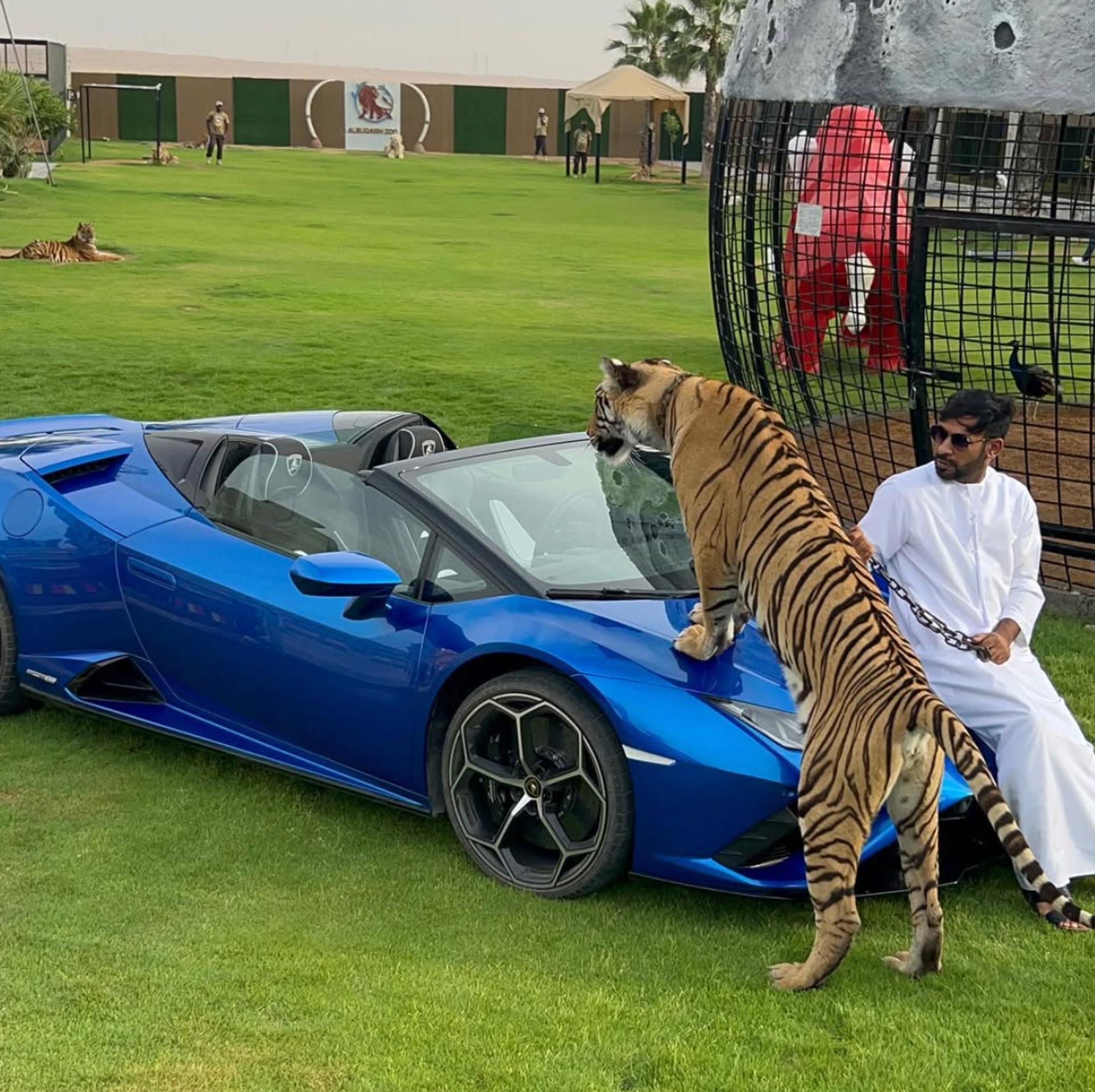Camilla’s view
A banker working with high-net worth individuals across the Gulf talks fondly about his favorite client. He’s a young sheikh, has a lot of money to invest, and owns a palatial home. He can be seen in all the best restaurants and clubs across the region. But he reserves a lot of his time and energy for his companion at home. He shares this home with... his pet lion.
The young sheikh loves his lion. Loves living with him in his palace. Bottle fed him as a cub. But realizes this is, after all, a majestic creature he’s trying to keep tame. So every month, he and his lion jump into his private jet and fly off to East Africa, to a game reserve. And there the lion gets to roam around for the weekend, doing as lions do, before flying back home to the Gulf, and resuming life as a pampered house pet.
Across the Gulf, cheetahs, tigers, lions, and other big cats have become the ultimate status symbol. For young men growing up in this region, it can sometimes feel like you’re a nobody until you’ve got an exotic pet. The photo of you, clad head-to-toe in designer labels, sprawled across your jewel-colored Lambo, with white tiger eating out of your hand. That’s the image everyone wants to share across social media.
And this is the photo that Emirati influencer Humaid Albuqaish regularly shares with his seven million followers on Instagram and TikTok. He is the social media personification of this ideal, posting daily from his private zoo in Umm Al Quwain. For $200, you can even book a visit to pet one of his lion or tiger cubs. Albuqaish documents their feeding and playtime as he watches his follower count grow.

The combination of enormous amounts of disposable income and the chance to enhance your social status through online bragging rights has created a huge demand for exotic pets. Despite strict laws across much of the region prohibiting private ownership of such animals, the Gulf remains one of the world’s most active hubs for animal trafficking.
Over the past decade most Gulf states have passed strict laws banning ownership of dangerous, wild, or exotic animals except by licensed zoos, wildlife parks, circuses, and breeding or research centers. Penalties up to around $150,000 are threatened.
This is where private zoos come in. A few famous Emiratis like Albuqaish have set up legal ways of owning big cats through strictly monitored private facilities, often on land donated by the Emirati royals. And in this respect, there’s no one bigger than Sheikh Hamdan Al Maktoum, the Crown Prince of Dubai. His Instagram account, boasting nearly 17 million followers, frequently features him interacting with animals from his family’s private zoo. No post is seemingly more popular than one that features Frosty, the white lion. Since his first appearance as an oh-so-cute cub in 2016, Frosty’s life has been chronicled to a highly engaged and adoring public.
With influencers like this providing a template that so many want to follow, it’s unsurprising that not everyone feels the need to comply with the law. While the days of a lion being paraded around Palm Jumeirah in a convertible Ferrari may be over, most residents of Dubai, Riyadh, Kuwait City, or Jeddah still have stories of visiting villas or palaces where a big cat prowled the grounds.
Take Dubai’s District One, a high-end villa community just east of Emirates Hills. Residents like to take a morning stroll along its quiet boulevards. Famous neighbors like boxer Amir Khan go about their daily life unbothered by fans. The only local celebrity that anyone talks about is the lion, who lives in one of the bigger villas, and can often be seen on a leash going for a walk around the block. (Sometimes, the big cats escape — like the one that famously roamed a Doha highway, sparking a brief backlash).
Completing the social media celebrity circuit is Famepark, a private zoo in Dubai so money, you aren’t even allowed to visit until you’ve been deemed a big enough celebrity. It’s run by billionaire construction boss Saif Belhasa. Perhaps better known internationally as the father of Money Kicks, the Emirati teen who rose to YouTube and TV fame a few years back for his $1 million sneaker collection, Belhasa is himself a skilled self-promoter. His schtick is to invite visiting celebs to come and meet his exotic animals, and then post the videos to boost his social currency.
There’s Lionel Messi, Manchester City’s Phil Foden feeding meat to a white lion, and Anthony Joshua losing a tug of war with a visibly annoyed liger (lion/tiger cross). And holding a lion cub is Andrew Tate.
So while you’ll probably never be famous enough to visit, you can watch — and envy — the celebrities who do. And, if you’ve got enough money and space at home, buy yourself a big cat. Who needs to visit Famepark when you’re an internet celebrity in your own right?
Camilla Wright is a media commentator and writer for global news and pop culture outlets, and publishes Britain’s biggest and best known newsletter.
